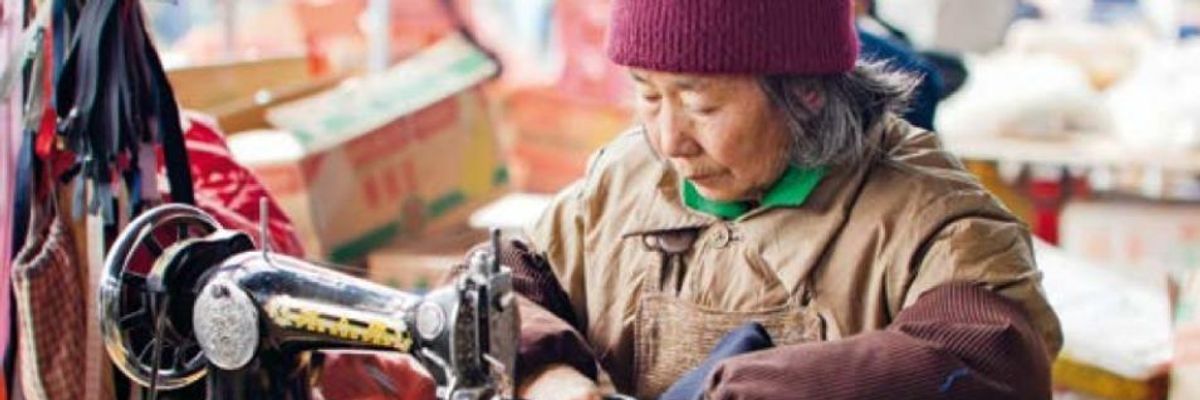The top one percent of the wealthiest people on the planet own nearly fifty percent of the world's assets while the bottom fifty percent of the global population combined own less than one percent of the world's wealth.
"These figures give more evidence that inequality is extreme and growing, and that economic recovery following the financial crisis has been skewed in favour of the wealthiest. In poor countries, rising inequality means the difference between children getting the chance to go to school and sick people getting life saving medicines." --Emma Seery, Oxfam International
Those are the findings of an annual report by the investment firm Credit Suisse released Tuesday--the 2014 Global Wealth Report (pdf)--which shows that global economic inequality has surged since the financial collapse of 2008.
According to the report, "global wealth has grown to a new record, rising by $20.1 trillion between mid-2013 and mid-2014, an increase of 8.3%, to reach $263 trillion - more than twice the $117 trillion recorded for the year 2000."
Though the rate of this wealth creation has been particularly fast over the last year--the fastest annual growth recorded since the pre-crisis year of 2007--the report notes that the benefits of this overall growth have flowed disproportionately to the already wealthy. And the report reveals that as of mid-2014, "the bottom half of the global population own less than 1% of total wealth. In sharp contrast, the richest decile hold 87% of the world's wealth, and the top percentile alone account for 48.2% of global assets."
Campaigners at Oxfam International, which earlier this put out their own report on global inequality (pdf), said the Credit Suisse report, though generally serving separate aims, confirms what they also found in terms of global inequality.
"These figures give more evidence that inequality is extreme and growing, and that economic recovery following the financial crisis has been skewed in favour of the wealthiest. In poor countries, rising inequality means the difference between children getting the chance to go to school and sick people getting life saving medicines," Oxfam's head of inequality Emma Seery, told the Guardian in response to the latest study.
In addition to giving an overall view of trends in global wealth, the authors of the Credit Suisse gave special attention to the issue of inequality in this year's report, noting the increasing level of concern surrounding the topic. "The changing distribution of wealth is now one of the most widely discussed and controversial of topics," they write, "Not least owing to [French economist] Thomas Piketty's recent account of long-term trends around inequality. We are confident that the depth of our data will make a valuable contribution to the inequality debate."
According to the report:
In almost all countries, the mean wealth of the top decile (i.e. the wealthiest 10% of adults) is more than ten times median wealth. For the top percentile (i.e. the wealthiest 1% of adults), mean wealth exceeds 100 times the median wealth in many countries and can approach 1000 times the median in the most unequal nations. This has been the case throughout most of human history, with wealth ownership often equating with land holdings, and wealth more often acquired via inheritance or conquest rather than talent or hard work. However, a combination of factors caused wealth inequality to trend downwards in high income countries during much of the 20th century, suggesting that a new era had emerged. That downward trend now appears to have stalled, and posssibly gone into reverse.

